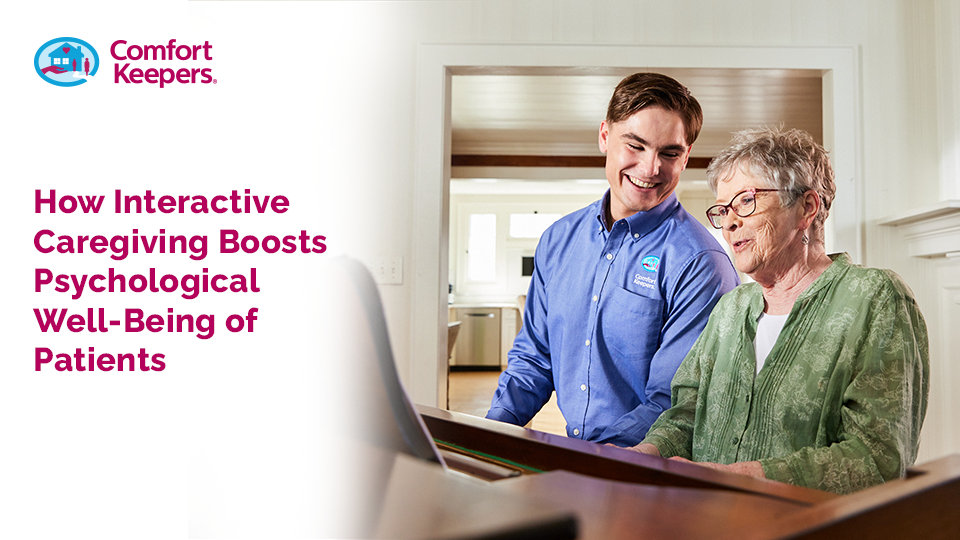
When looking for in-home care services, it can be helpful to know that there is an option that focuses on improving patients’ psychological well-being. To truly understand why this method is so effective, let’s look at some of the benefits of interactive caregivers on patients’ mental health.
Psychological Benefits for Interactive Caregivers
Interactive caregivers are more likely to feel satisfied with their work and less like it’s a burden. They enjoy helping their patients stay in their homes, improving their quality of life, and contributing to a caring community.
Patients Like It Too
On the other hand, patients also benefit from having someone to talk to. They may feel isolated and lonely due to their illness or treatment regimen. Interactive caregiving can be a way for patients to stay connected with the outside world, especially when they might not have family members nearby or friends who understand what they’re going through. Additionally, some patients may find it easier to talk about their health issues with someone they don’t have a relationship with―especially since some illnesses can be embarrassing or uncomfortable for people who haven’t experienced them before.
What Does This Mean for You?
Interactive caregiving effectively boosts your loved one’s psychological well-being and promotes healthy relationships between caregivers and patients. It can also be more cost-effective than other forms of senior care, meaning you’ll have more money in your pocket at the end of the month.
Consider Using Interactive Caregivers to Help Complete Menial Tasks
Depending on your needs and preferences, consider using interactive caregivers to help complete some of the more menial tasks associated with home care services. Interaction between patients and their caregivers has been shown to have many benefits for both parties.
Patients can communicate with their caretakers and feel less isolated, improving their mood and well-being. In addition, interacting with another person helps stimulate mental activity in older adults, who tend to have less cognitive activity as they age; this can lead to improved memory function over time.
Interactive caregivers are more likely to engage in conversations with patients than supportive ones (who provide emotional support), help out with daily activities (such as getting dressed), do things that make people feel good, provide emotional support, keep patients company when they’re alone at home, make sure medication is properly taken, remind people about doctor appointments, etc.
As you can see, there are many benefits of using interactive caregivers. If you’re looking for help with your home care needs, it may be worth considering this type of service. It’s important to remember that many types of caregivers are available, and each one will have their unique style and approach when providing assistance with tasks around the house.
It is up to each patient or family member whether or not they want this type of assistance and what kind of relationship they want with their caregiver(s). If you require caregiving, home health care, or senior care assistance like that provided by Comfort Keepers Spokane, feel free to visit our website and get in touch.









